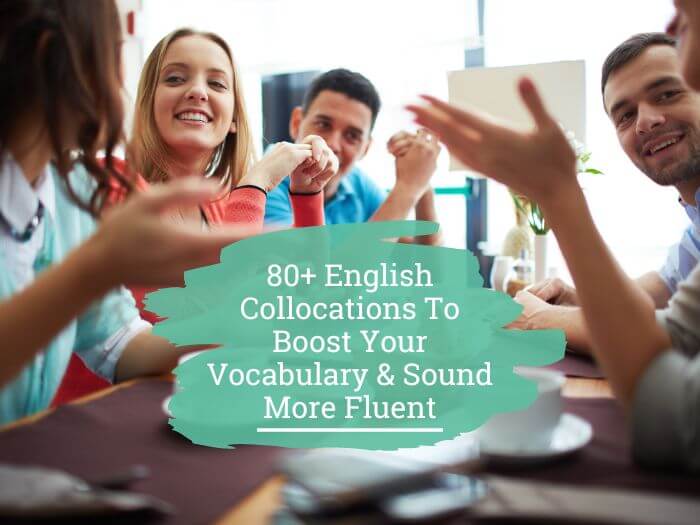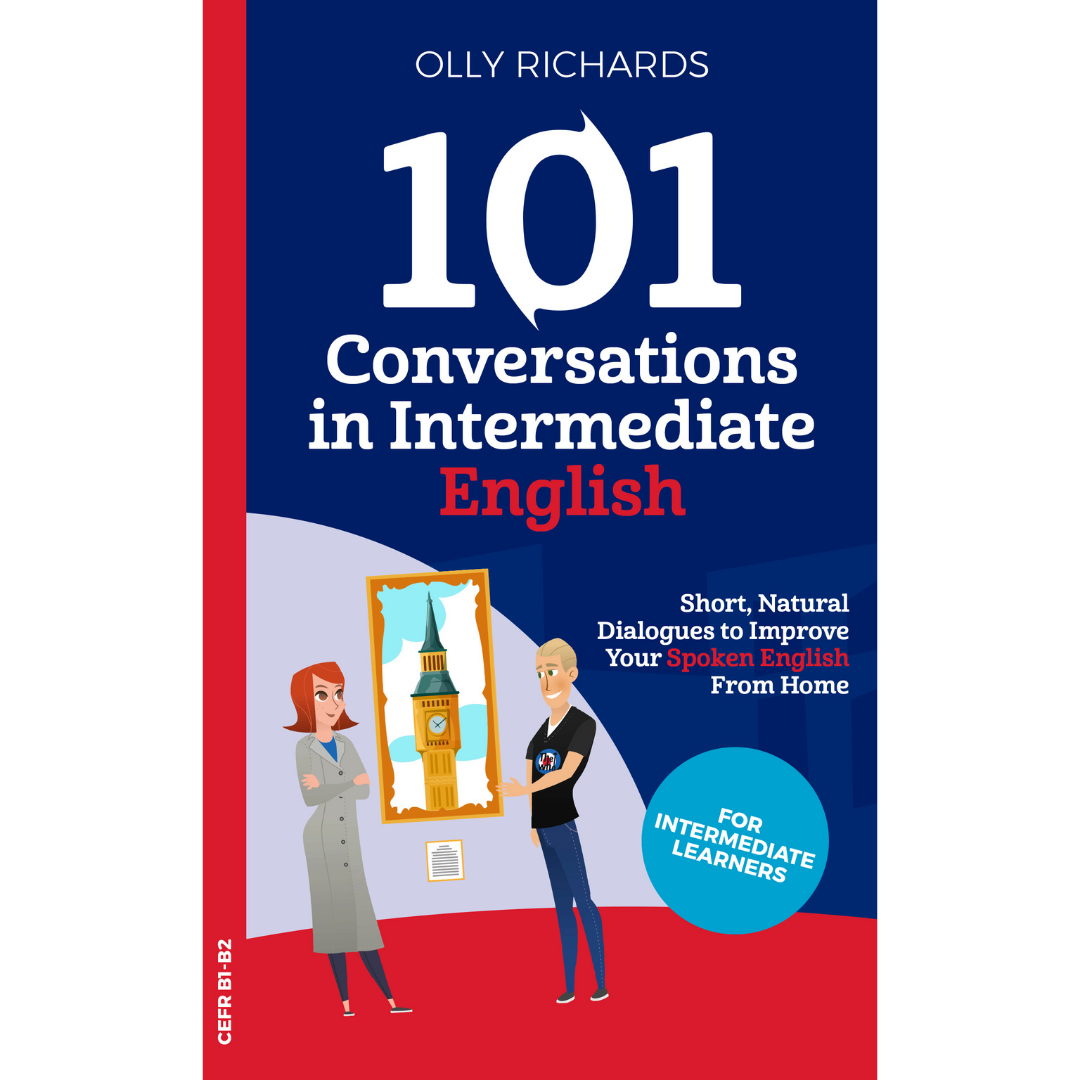Would you understand me if I said, “I need to make my English homework”?
I think you would.
“I need to make my English homework,” however, is not how we would normally express this idea in English. We are way more likely to say, “I need to do my English homework.”
“Do homework” is an example of what we call English collocations.
After reading this post, you’ll better understand what collocations are, why they’re important, and how to learn them.
Let’s dig into it.
Table of Contents
What Are English Collocations?
Short answer: Collocations are pairs or groups of words that frequently appear together. The words in bold in the following sentences are collocations:
- What time are we going to have dinner?
- We’ll start doing our homework very soon.
- Heavy rain fell over the night all over Scotland.
- See those tall buildings? That’s the area where I used to work.
- Taylor Swift has blond hair.
Long answer:
English, like your first language, has rules. Here’s an example of an English rule: “The past simple of regular verbs is formed by adding -ed.” If you’ve been learning English for a while, I’m sure you know so many other grammar rules.
Certain elements of language, however, are not governed by rules. Collocations are one of those elements.
Why do we say “blond hair” and not “yellow hair”? What’s the rule here?

Sorry, there’s no real rule. The noun “hair” is often found with the adjective “blond” – that’s it. But if you really want a rule, here it is: when you talk about hair that has a yellowish colour, say “blond.”
Not a very useful rule – I know.
So, because there are no real rules to English collocations, learning them may be tricky. But let me be clear: learning collocations is crucial!
I’ll tell you why.
Why Learn English Collocations?
5 main reasons:
- You’ll sound more natural when you’re speaking and writing.
- You’ll express your ideas with more precision by adding colour and specificity to your vocabulary. For example, saying, “I had some very good food in that restaurant” is okay; saying “I had some delicious food in that restaurant,” however, is more specific.
- Knowing a variety of collocations helps you with listening and reading because your brain will be better able to predict “what’s coming next.”
Let me explain.
Imagine you’re watching a movie in English when you hear the actor say, “No! That’s not true! That’s just a figment of your _________.”

If you know the collocation “figment of someone’s imagination,” chances are that when you hear the word “figment,” your brain expects to hear the word “imagination” very soon.
In other words, you’ll know what the actor says before he says it, which can help you reduce the effort you need to make to understand the movie. This, in turn, helps you become a more fluent listener – and reader, as the same is true for reading.
- What I said in point 3 above also applies to speaking and writing. The more collocations you know, the less your brain needs to make an effort to recall words when you’re communicating in spoken or written form. In short, you’ll be a more fluent speaker and writer. Check out more tips on how to speak English fluently.
- Learning collocations makes language learning fun! (This, at least, is true for me.)
Okay, I hope I’ve convinced you that learning English collocations is important. But before I talk about what you could do to learn them, let’s first look at the two main types of collocations: strong and weak.
Strong Collocations
When the link between the two words is fixed or not so flexible, we talk about strong collocations.
“Commit a crime” is a good example. We don’t say “do a crime” or “make a crime” and very few words go with “crime” to express the idea of doing something illegal.

Some other examples include:
- #1. A figment of imagination – That is a complete figment of his imagination.
- #2. Fast food – Fast food often contains harmful trans fats.
- #3. Whisk an egg – Whisk eggs and vanilla into the butter mixture until blended.
- #4. To feel deliriously happy – Ronni had never been so deliriously happy in her life.
- #5. To and fro – He made her walk to and fro.
- #6. Back and forth – Back and forth action took place between both teams.
- #7. Inclement weather – We also provide snow removal assistance during inclement weather.
- #8. Meeting + adjourn – And the meeting adjourned at nine thirty-two.
- #9. Make a wish – Make a wish list of cars that you are interested in.
- #10. Winding road – We climb the winding road in silence.
…and many more.
Weak collocations, on the other hand, are different.
Weak Collocations
These are collocations where the link between the words is not that strong. For example, we say “He has very strong opinions” not “hard opinions.” However, the word “strong” and “opinion” collocate with many other words:
- #11. Strong taste – We prefer this because it does not have a strong taste.
- #12. Good opinion – He had a good opinion of his writings.
- #13. Strong man – A relaxed man is a strong man.
- #14. Mixed opinions – The subsequent military action by NATO resulted in mixed opinions.
- #15. Strong woman – She is the strongest woman I know.
- #16. Expert opinion – Recommendation sites and services are missing this expert opinion.
- #17. Strong wind – Strong winds and torrential rainfall disrupted transportation services.
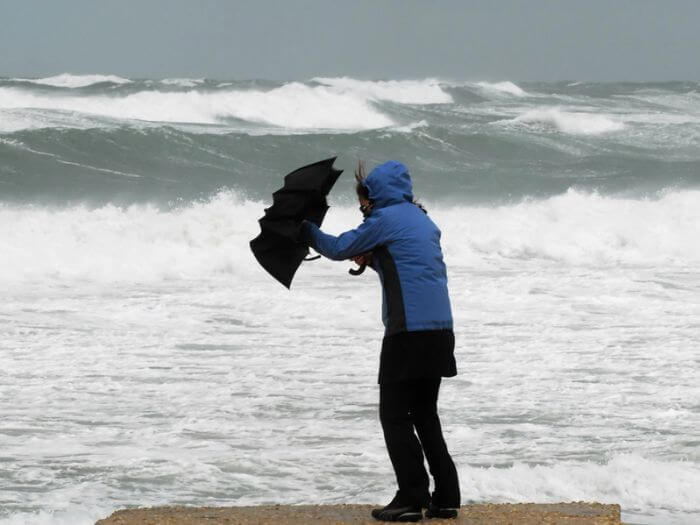
- #18. Honest opinion – What she was offering was her honest opinion.
- #19. Strong influence – His plays still exhibit a strong influence on our modern entertainment.
- #20. Conflicting opinion – Participants said that hospitals get frustrated when responding organizations offer conflicting opinions.
Let’s now look at how collocations are classified grammatically.
6 Types Of English Collocations
Collocations are combinations of words. Which types of words? Several.
You can find collocations that are made up of:
- Verbs + nouns
- Nouns + verbs
- Nouns + nouns
- Adjectives + nouns
- Adverbs + adjectives
- Verbs + adverbs
Let’s look at each of these.
Verb + Noun Collocations
Below is a text taken from a BBC article about sport. Can you find a verb + noun collocation in it? Read it carefully and then check your answer below.
Only now, when they take on England this Saturday at Wembley, will Brazil finally have in Dorival Jr a permanent manager in charge, putting an end to what was largely perceived back home as “a lost year”.
Have you found it?
The verb + noun collocation is “putting an end (to something).” Some other examples of verb + noun collocations (not from the BBC article) are:
- #21. Take a chance – By definition, taking a chance means not being in control.
- #22. Make a promise – You've made a promise, and fulfilled.
- #23. Do research – She has been doing research in logic programming since 1986.
- #24. Catch a glimpse – I caught a glimpse of her through the door.
- #25. Pay a visit – Several Mongolian officials paid a visit to China.
- #26. Save energy – Better public transport is essential to save energy.
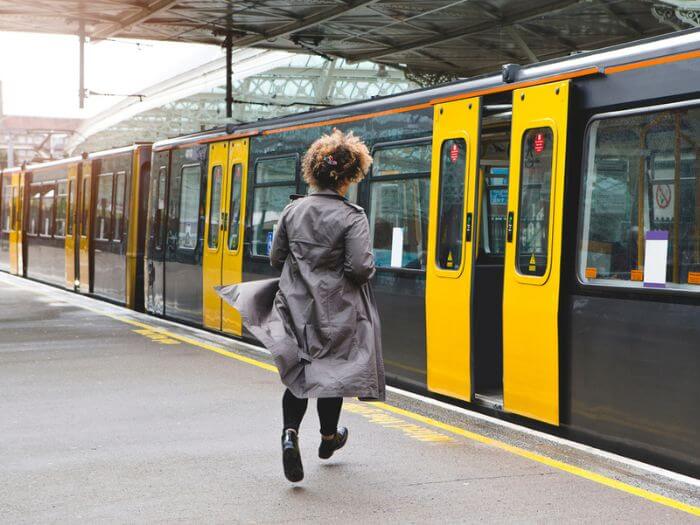
- #27. Give a presentation – He gave a presentation regarding the integration of immigrants to our business community.
- #28. Break a record – Madonna's performance broke a record as the most-watched Super Bowl halftime show in history, garnering 114 million viewers.
- #29. Keep an appointment – If you cannot keep an appointment, notify the WIC office as soon as possible
- #30. Face consequences – He's more worried about the possibility of being caught and facing consequences for his abusive behavior.
Noun + Noun
Here’s an excerpt from another BBC article, this time about science. Can you spot the noun + noun collocation?
Dr O'Donoghue also said he had a “secret hope” it could tell scientists more about the rotation period […] of the planets.
Here the noun + noun collocation is “rotation period” (weak collocation) Some other examples are:
- #31. Traffic accident – Wet roads caused nine traffic accidents throughout the state.
- #32. Science museum – My parents volunteer at the local science museum.
- #33. Peer pressure – Helping children cope with peer pressure begins in preschool.
- #34. Health insurance – His research includes health insurance coverage and pharmaceutical drug issues.
- #35. Race discrimination – She sued her employer claiming sex and race discrimination.
- #36. Bottle opener – Do the cabins have a wine bottle opener?
- #37. Noise pollution – Noise pollution is caused by industry and truck traffic.
- #38. Safety measures – The reform reinforces health and safety measures in the workplace.
- #39. House owner – Always ask the builder or house owner for permission first.
- #40. Shop assistant – One shop assistant approached my very bored husband rather than me.

Noun + Verb Collocations
Can you find the noun + verb collocation in this sentence I took from another BBC article about science?
While we're largely familiar with the five outward-facing or “exteroceptive” senses – sight, smell, hearing, taste and touch – interoception is our ability to perceive and interpret signals coming from within our own bodies.
Here the noun + verb collocation is “signal comes from something” Some other examples for you:
- #41. Heart + beats – Is my heart beating faster than usual?
- #42. Clock + tick – The clock ticked away in the silence.
- #43. Bird + sing – The sun shone and the birds sang.
- #44. Car + start – A moment later the big brown car pulled away from the kerb.
- #45. Problem + arise – Start prevention early before a problem arises.
- #46. Rain + pour – The rain poured heavily outside washing clear the mountains.
- #47. Wave + crash – Waves crash over the rocks every few seconds.
- #48. Fire + burn – As the fire burns, it moves through the reservoir toward production wells.
- #49. Child + play – The scene here depicts children playing with a stag beetle.
- #50. Wind + howl – The wind howls outside, and beats against the window panes.
Adjective + Noun Collocations
Let’s see if you can find one in this sentence from a BBC article about a bear:
In October 2023, Jimmy's Farm & Wildlife Park embarked on a campaign to save the bear and were “overwhelmed” by public support which saw more than £60,000 donated to the cause.
Found it?
Yes, it’s “public support.”
Some other examples are:
- #51. Bright future – This club still has a very bright future.
- #52. Heavy rain – The heavy rain has caused more flooding.
- #53. Strong coffee – She made a huge pot of strong coffee.
- #54. Deep thought – He was in deep thought as he was remembering the football days.
- #55. High quality – A high quality product deserves equally high quality service.
- #56. Cold weather – Record cold weather events precede cooling climate change.
- #57. Warm welcome – Their warm welcome included cultural programs that were highly entertaining.
- #58. Hard evidence – You don't need “hard evidence” to report abuse.
- #59. Rich history – Portuguese music reflects its rich history and privileged geographical location.
- #60. Sharp knife – Cut out the circle shape using a sharp knife.

Adverb + Adjective
One more for you, taken from this article about a 75-year-old Scottish grandmother who’s become a videogaming sensation. What the adverb + adjective collocation?
I said yes and took a friend who comes from America with me, just to balance it up. We had three games with him and it was absolutely fantastic.
Here it is: “absolutely fantastic.” And here are some more examples:

- #61. Highly competitive – The aviation world today is highly competitive.
- #62. Deeply moved – His compelling presentation deeply moved everyone present.
- #63. Extremely happy – We were extremely happy with this hotel.
- #64. Completely satisfied – Has the client been completely satisfied with your service?
- #65. Visibly shocked – Mrs Bain and Ms Riseley were visibly shocked when they had a look inside the unsecured property this week.
- #66. Totally unaware – Many people are totally unaware of this important fact.
- #67. Rapidly expanding – The government experimented with cooperative shops in the rapidly expanding post-war suburbs.
- #68. Severely damaged – The hurricane destroyed another 213 buildings and severely damaged 530.
- #69. Absolutely essential – Strong management commitment to the expert system project is absolutely essential.
- #70. Remarkably skilled – Students are remarkably skilled in conveying their characters through the role plays.
Verb + Adverb Collocations
Last one! (Taken from this BBC article)
Mr Gooding said he hoped the threat of a life sentence will be enough to cause those who drive recklessly to change their ways, the Sunday Express reported.
Did you see it? It’s “drive recklessly.” Some other examples of verb+ adverb include:
- #71. Speak softly – Our words speak softly and our actions speak volumes.
- #72. Run quickly – He ran quickly to the car, not looking at the sign again.
- #73. Laugh loudly – They were enjoying themselves and laughing loudly when suddenly the door opened.
- #74. Work efficiently – A good bug-reporting system may help the programmers work efficiently.
- #75. Drive carefully – Drive carefully; 90% of the people in the world are caused by accidents.
- #76. Listen closely – This involves listening closely to the user community to understand their needs.
- #77. Wait patiently – They made themselves comfortable in armchairs and waited patiently.
- #78. Think deeply – She looks carefully, thinks deeply , and expresses herself directly through her photographs.
- #79. Act swiftly – Effective leaders act and move quickly because nothing communicates that you care more than acting swiftly.
- #80. Smile warmly – The maître d'hôtel looked up from his reservation book and smiled warmly.
4 Ways To Learn Learn English Collocations
Now that you know more about collocations, let’s see how to learn them.
Learn Collocations With Dictionaries
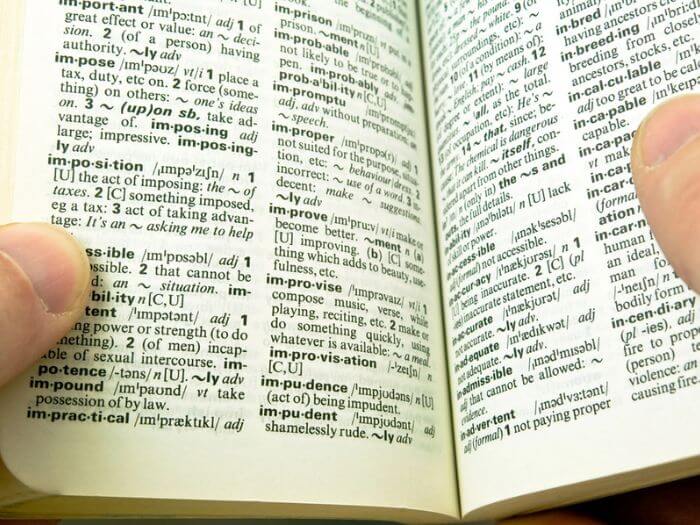
Dictionaries are great tools for learning collocations.
In the Oxford Learner’s Dictionary, for example, collocations are indicated in bold. For example, if you look up the word “language,” you’ll notice that some of the collocations are:
- Speak a language
- Foreign language
- Native language
- To have a good command of a language
- Language skills
Here’s a tip: when you’re looking up words in a dictionary, get into the habit of learning some collocations that include that world.
You may also want to use a collocation dictionary. This is a special dictionary where you’ll find thousands of collocations. Here are some of my favourites:
- Oxford Collocations Dictionary
- Longman Collocations Dictionary and Thesaurus
- Macmillan Collocations Dictionary
Learn Collocations With Online Dictionaries
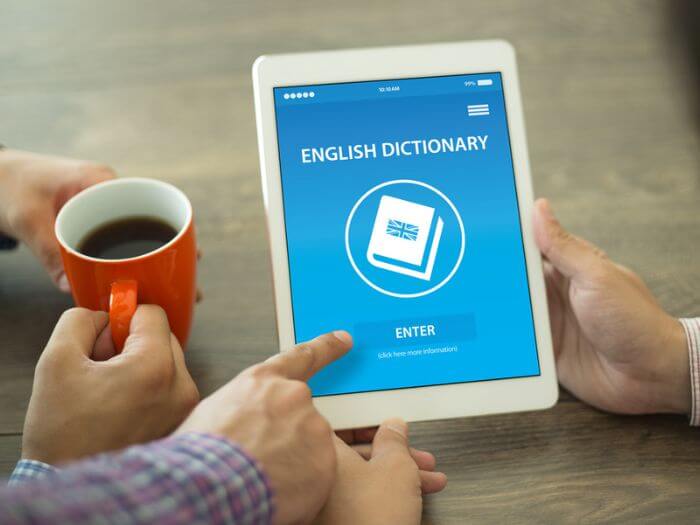
There are also plenty of online collocations dictionaries that are available for free. I recommend that you explore the following:
Learn Collocations With Collocations Books
In “The 11 Best English Vocabulary Books For English Learners,” I talk about a fantastic collocations book by Raymond Murphy and Felicity Ann O’Dell called “English Collocations In Use.” Check that out!
Learn Collocations Through Stories
Learn collocations in context. You can do this by reading and listening as these two activities help you expose your brain to a large number of collocations.
I've written several books in English where you’ll find hundreds of collocations used in the context of an engaging story. It’s the best way to learn them – in my opinion.
English Collocations FAQ
What are the 7 types of collocation?
The 7 common types of collocation are: verb + noun, noun + noun, adjective + noun, noun + verb, verb + adverb, adverb + adjective, and verb + verb. These combinations sound natural to native speakers.
What are the 10 examples of collocation in English?
Here are 10 common collocations:
– Make a decision
– Break the news
– Fast food
– Strong coffee
– Catch a cold
– Do homework
– Heavy rain
– Pay attention
– Take a break
– Run a business
What is basic English collocation?
Basic collocations are common word pairings like “make a mistake” or “strong tea” that are frequently used together. Learning them helps your English sound more natural and fluent.
What is a collocation and example?
A collocation is a group of words that are often used together in English. For example, we say “do homework”, not “make homework”—this natural pairing is a collocation.
Exploring English Collocations
Okay, I hope you found this post about collocations useful. Remember to explore, learn, and – very importantly – have fun!
If you're looking for more ways to see and learn collocations in their natural habitat you can read English magazines, listen to English podcasts or watch YouTube channels to learn English and much more.
The important thing is to do something you enjoy so that you're motivated to read, watch or listen again and again. Before you know it, you'll know lots of English collocations.

Olly Richards
Creator of the StoryLearning® Method
Olly Richards is a renowned polyglot and language learning expert with over 15 years of experience teaching millions through his innovative StoryLearning® method. He is the creator of StoryLearning, one of the world's largest language learning blogs with 500,000+ monthly readers.
Olly has authored 30+ language learning books and courses, including the bestselling "Short Stories" series published by Teach Yourself.
When not developing new teaching methods, Richards practices what he preaches—he speaks 8 languages fluently and continues learning new ones through his own methodology.
